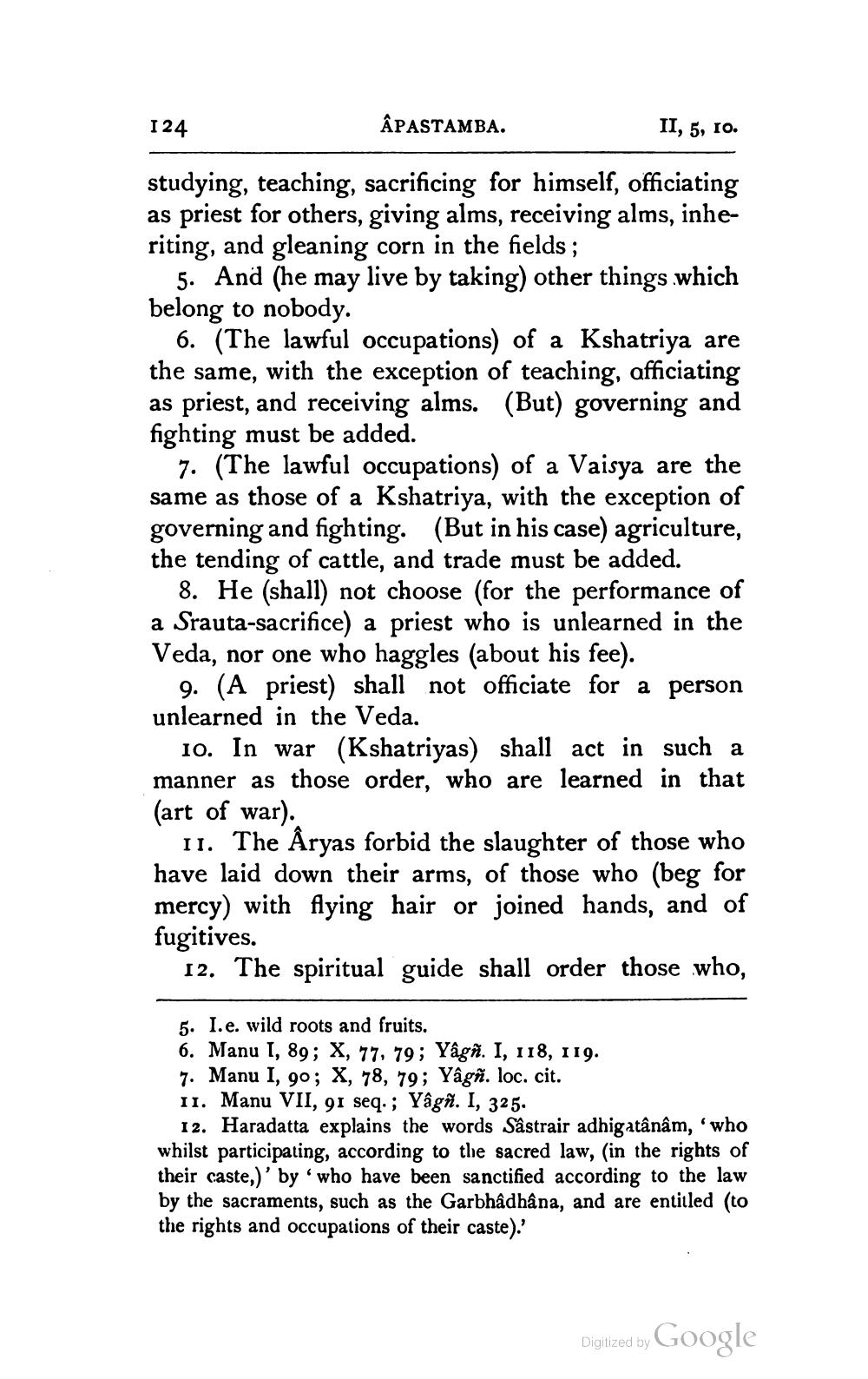________________
I 24
ÂPASTAMBA.
II, 5, 10.
studying, teaching, sacrificing for himself, officiating as priest for others, giving alms, receiving alms, inheriting, and gleaning corn in the fields ;
5. And (he may live by taking) other things .which belong to nobody.
6. (The lawful occupations) of a Kshatriya are the same, with the exception of teaching, afficiating as priest, and receiving alms. (But) governing and fighting must be added.
7. (The lawful occupations) of a Vaisya are the same as those of a Kshatriya, with the exception of governing and fighting. (But in his case) agriculture, the tending of cattle, and trade must be added.
8. He (shall) not choose (for the performance of a Srauta-sacrifice) a priest who is unlearned in the Veda, nor one who haggles (about his fee).
9. (A priest) shall not officiate for a person unlearned in the Veda.
10. In war (Kshatriyas) shall act in such a manner as those order, who are learned in that (art of war).
11. The Aryas forbid the slaughter of those who have laid down their arms, of those who (beg for mercy) with flying hair or joined hands, and of fugitives.
12. The spiritual guide shall order those who,
5. I.e. wild roots and fruits. 6. Manu I, 89; X, 77, 79; Yâgñ. I, 118, 119. 7. Manu I, 90; X, 78, 79; Yâgñ. loc. cit. II. Manu VII, 91 seq.; Yâgn. I, 325.
12. Haradatta explains the words Sâstrair adhig atânâm, 'who whilst participating, according to the sacred law, (in the rights of their caste,)' by who have been sanctified according to the law by the sacraments, such as the Garbhadhâna, and are entitled to the rights and occupations of their caste).'
Digitized by Google




